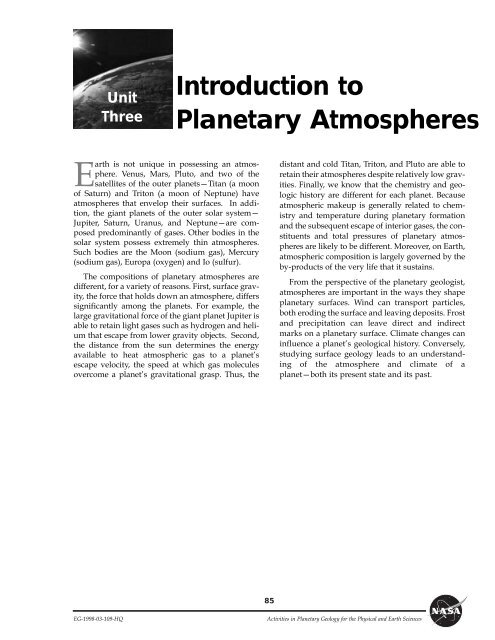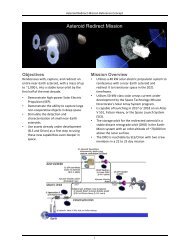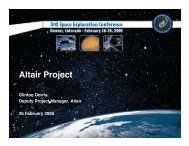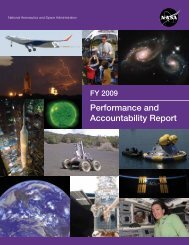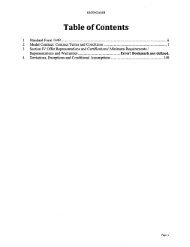Planetary Geology pdf - NASA
Planetary Geology pdf - NASA
Planetary Geology pdf - NASA
You also want an ePaper? Increase the reach of your titles
YUMPU automatically turns print PDFs into web optimized ePapers that Google loves.
Unit<br />
Three<br />
Earth is not unique in possessing an atmosphere.<br />
Venus, Mars, Pluto, and two of the<br />
satellites of the outer planetsÑTitan (a moon<br />
of Saturn) and Triton (a moon of Neptune) have<br />
atmospheres that envelop their surfaces. In addition,<br />
the giant planets of the outer solar systemÑ<br />
Jupiter, Saturn, Uranus, and NeptuneÑare composed<br />
predominantly of gases. Other bodies in the<br />
solar system possess extremely thin atmospheres.<br />
Such bodies are the Moon (sodium gas), Mercury<br />
(sodium gas), Europa (oxygen) and Io (sulfur).<br />
The compositions of planetary atmospheres are<br />
different, for a variety of reasons. First, surface gravity,<br />
the force that holds down an atmosphere, differs<br />
significantly among the planets. For example, the<br />
large gravitational force of the giant planet Jupiter is<br />
able to retain light gases such as hydrogen and helium<br />
that escape from lower gravity objects. Second,<br />
the distance from the sun determines the energy<br />
available to heat atmospheric gas to a planetÕs<br />
escape velocity, the speed at which gas molecules<br />
overcome a planetÕs gravitational grasp. Thus, the<br />
Introduction to<br />
<strong>Planetary</strong> Atmospheres<br />
EG-1998-03-109-HQ Activities in <strong>Planetary</strong> <strong>Geology</strong> for the Physical and Earth Sciences<br />
85<br />
distant and cold Titan, Triton, and Pluto are able to<br />
retain their atmospheres despite relatively low gravities.<br />
Finally, we know that the chemistry and geologic<br />
history are different for each planet. Because<br />
atmospheric makeup is generally related to chemistry<br />
and temperature during planetary formation<br />
and the subsequent escape of interior gases, the constituents<br />
and total pressures of planetary atmospheres<br />
are likely to be different. Moreover, on Earth,<br />
atmospheric composition is largely governed by the<br />
by-products of the very life that it sustains.<br />
From the perspective of the planetary geologist,<br />
atmospheres are important in the ways they shape<br />
planetary surfaces. Wind can transport particles,<br />
both eroding the surface and leaving deposits. Frost<br />
and precipitation can leave direct and indirect<br />
marks on a planetary surface. Climate changes can<br />
influence a planetÕs geological history. Conversely,<br />
studying surface geology leads to an understanding<br />
of the atmosphere and climate of a<br />
planetÑboth its present state and its past.


